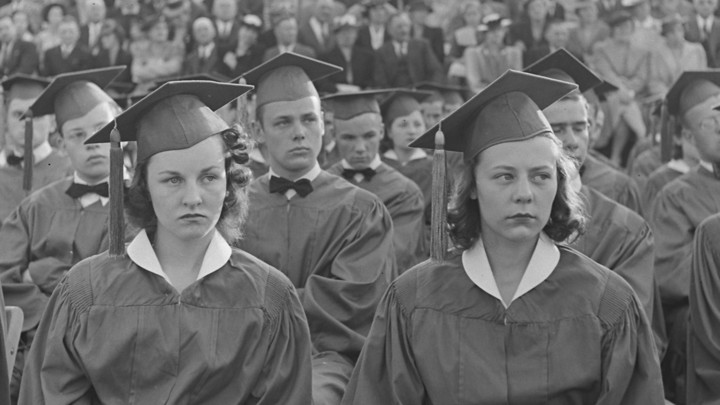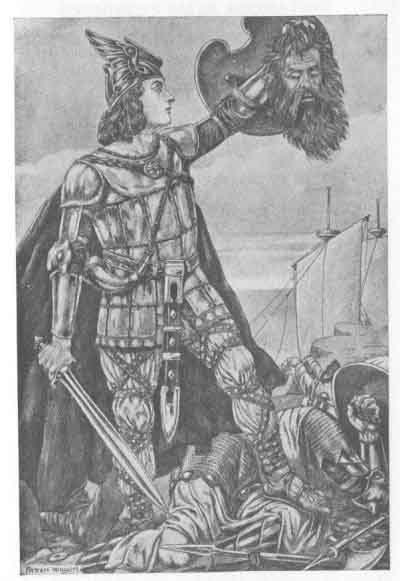Wednesday, October 9, 2019
Eugene O'Neill--Beyond the Horizon (1920)
This is the fourth Eugene O'Neill play to come up, and I am still only in volume 3 (of the IWE list). However there are only four more over the last seventeen volumes, so I am halfway through with him already. Beyond the Horizon is the one of earliest date among these works, all of which were produced between 1920 and 1933. The IWE introduction is animated, so I'll print it in more or less its entirety.
"This was O'Neill's first big success. It won the Pulitzer Prize in the year it was produced. O'Neill was never more effective dramatically; his scenes rise to breathtaking peaks, fall into breathing-spell valleys, and finally, almost imperceptibly, lead into the subdued tone of an ending that is the more effective by its contrast."
I am assuming that this play, perhaps more than others on this program, needs to be seen performed. Reading it is fine in its way, it generates plenty of nostalgic feeling for me, especially as the geographical and cultural world that O'Neill inhabits is as close to that of my own as almost any of the writers on this list, though I do not experience the emotional swings as violently as the playgoer who wrote this summary seems to have. The plot has a lot in common with the famous movie It's a Wonderful Life, if every turn in the story had resulted in complete disaster--the main character forgoes an opportunity to go on a voyage to stay home and get married and the wife ends up detesting him; the brother does leave the farm for a promising opportunity, has a massive fight with the father and ends up never speaking to him again; the father dies and the son that stayed behind runs the family concern into the ground, with the accompanying poverty and bankruptcy; the doomed couple has a child and the child dies; and on and on. It's relentlessly grim, to be truthful, though I can believe that nothing quite like it had been seen on the American stage when it first appeared.
Act I, Scene II: Robert's uncle, the ship captain, when Robert tells him he won't be going on the journey:
"I'm ashamed of you, Robert, to go lettin' a little huggin' and kissin' in the dark spile your chances to make a man out o' yourself."
Once people in a Eugene O'Neill play start being negative (which usually happens in the first few pages) you know things are not going to turn out happily.
Act II, Scene I, stage directions--things have already gone severely downhill:
"MRS ATKINS is in her wheel chair. She is a thin, pale-faced, unintelligent-looking woman of about forty-eight, with hard, bright eyes. A victim of partial paralysis for many years, condemned to be pushed from day to day of her life in a wheel chair, she has developed the selfish, irritable nature of the chronic invalid."
She is of course younger than I am now, though people got old, or were old, early back then. In the literary worlds of the past, fifty is a venerable age at the very least. There aren't many people at all hanging around who are much older than that.
Later in the same scene, Ruth the disappointed wife unloads on Robert:
"...living with a man like you--having to suffer all the time because you've never been man enough to work and do things like other people. But no! You never own up to that. You think you're so much better than other folks, with your college education, where you never learned a thing, and always reading your stupid books instead of working...If I could have seen how you were in your true self--like you are now--I'd have killed myself before I'd have married you! I was sorry for it before we'd been together a month. I knew what you were really like--when it was too late."
My wife could talk to me like this, but, thankfully, she does not.
While I grasp that there is an element of theatrical effect involved, the extreme aging and complete physical decline of the young couple in Act III--by which time they would have been 31 and 28 or so at the most--strikes a 21st century sensibility as almost too exaggerated. Though these kinds of bad marriages, especially among the non-privileged classes who largely eschew them now, really did seem to kill people at this time.
It is worth noting (again) that many O'Neill characters are not terribly intelligent or sophisticated in comparison with their fellows in the literary canon. The characters in this play are not the outright inarticulate brutes that populate some of this author's other work, but Ruth and her mother at least seem kind of dull-minded. My impression is that women in general are not depicted as terribly dynamic, intellectually or otherwise, across all of the O'Neill plays, which would not be uncharacteristic of the male writers of his generation. His dialogue is a mix of outbursts of raw emotion with elaborate speeches articulating the characters' sense of their own doom. I suspect that because of the influence of this style on subsequent generations of American film and theatrical writing, it does not always occur to us that it is kind of strange.
This was the 3rd play, along with Ah Wilderness! and All God's Chillun Got Wings, in volume 342 of the Modern Library, and I have now done all three of them for this program, the whole book. It will sit up on the shelf now until the end of my days, perhaps never to be pulled down again. It isn't in very good shape. The cover is still attached in both the front and back, but not by much. It came from the Library of Trenton High School in Trenton, Michigan. Judging by the penciled in notes in the margins, it was once in the possession of someone who played Mrs Miller in a production of Ah Wilderness!. Now I am wallowing in nostalgia for the half-baked mental universe of my youth. The season contributes to that, evoking as it does fall afternoons in the library and the hopefulness of the new school that not only has not yet died in October, but seems to be just on the point of ripening..But I will stop.
The Challenge
A pretty lousy one.
1. Donald McCaig--Ruth's Journey...…………………………………….311
2. Robyn Carr--The Best of Us...…………………………………………283
3. Daylight (movie--1996)………………………………………………..207
4. Robert Marasco--Burnt Offerings...…………………………………….94
5. Kendall Taylor--Sometimes Madness is Wisdom...……………………..11
6. John Chamberlain--The Roots of Capitalism...…………………………..1
7. Patricia D'Antonio--Nursing With a Message...………………………….1
8. Sebastian Howley--Deathbed...…………………………………………..1
9. S. D. Lowendowski--Snapped...………………………………………….1
10. Louis Boudin--A Socialist Empire: The Incas of Peru...………………..0
Sparsely Attended Wednesday Night Games
#7 D'Antonio over #10 Boudin
The second straight Challenge for which Boudin has qualified. It makes me feel like my wholly innocuous searches are being tampered with.
#8 Howley over #9 Lowendowski
The Thursday Quadruple Header
Noon Tip-Off
#7 D'Antonio over #2 Carr
The D'Antonio book is extremely short.
2:30 pm
#6 Chamberlain over #3 Daylight
Evening Session 7 pm
#8 Howley over #1 McCaig
Upset
9:30 pm Nightcap
#4 Marasco over #5 Taylor
The Taylor book is about F Scott Fitzgerald's marriage, and is the only entry in this group that is the kind of book I would normally be interested in. But I am so far behind on this list that I am going to be looking for shorter books for a few sessions here if it can be helped.
Friday Prime Time Doubleheader
7pm
#4 Marasco over #8 Howley
No prayer for Howley. The Marasco book appears to be a genre novel, but it was published in 1973, at least, which might make it of interest to me.
9pm
#7 D'Antonio over #6 Chamberlain
Championship Saturday Night
#7 D'Antonio over #4 Marasco
The D'Antonio book is only 145 pages, so even if it is terrible, the agony won't last long.
Monday, October 7, 2019
October 2019
A List: King Horn...……………………………….37/52
B List: Between books right now
C List: Scott--The Heart of Midlothian...……….234/570
The latest B-list entry was short, so hopefully my report on it will be up in a couple of days.
King Horn is one of those less-celebrated old English poems of which the world is not exactly awash in copies with modern translations. There was a series of these, including the Seafarer and the Wanderer, and Sir Orfeo is still to come. Since reading Old (as opposed to Middle) English is too much work for me at this time in my life, I am reading a 1911 "re-telling" of the story by one Laura Hibbard that I found online. Horn, who has not actually made it all the way to crowned head yet even though I am 3/4s of the way through his poem, is, in this telling at least, more recognizably human than your typical Dark Ages Beowulf type hero. Hibbard has given him some affection, both romantic and for certain of his comrades in arms, beyond the usual revenge and honor-driven rage. I don't read these A-stories carefully enough anymore to get anything out of them beyond what strikes me blatantly.
Though I am going slowly through his book--and in truth he is not an ideal C-list type of author--I do like Scott more than I thought I was going to, and he is a much more serious and thorough 19th century type novelist than I had been led to believe. Now he is not a pithy writer, which makes him almost impossible for me to read after 3 or 4 in the afternoon, so I foresee it taking me several months to get through this book. It has its worthy qualities however.
I am not yet finished with the porch for this year, though it has not been the warmest October (at least here), and I was even forced inside a couple of days last week when it was 58 degrees and raining (on this same day the weather map said it was 97 in Washington, 92 in Philadelphia, and 90 in New York. I was about 100 miles north of the heat line). Even in the week upcoming it is barely going to get above 60-65, but I can still go out. October 20th is usually about the limit anyway.
The leaves are already changing color with the cool evenings, but as it been a very dry summer, the colors are not as vivid and dynamic as they are sometimes. It is still poignant, especially on an overcast, melancholy day like last Sunday, but dull yellows and browns more like what you would find in the Mid-Atlantic are the primary impression. Well, we've got about 2 weeks left before they're all gone, maybe things will improve. I'll try to remember to take a picture.
I'll have to take some of my own autumn pictures. Almost all of the New England in Autumn pictures on the internet are of the perfect towns on the perfect days, which are not lies, but here in this busy and complicated part of my life I haven't been able to get out to see them for a few years. The picture above is from Brattleboro, a place I do get to, and which is pretty enough, and even has perfect picture days once in a while, though probably more common there in wintry than autumn scenes.
Kate Bilo discussing last week's heat wave in Philadelphia while trying to get into the October spirit.
B List: Between books right now
C List: Scott--The Heart of Midlothian...……….234/570
The latest B-list entry was short, so hopefully my report on it will be up in a couple of days.
King Horn is one of those less-celebrated old English poems of which the world is not exactly awash in copies with modern translations. There was a series of these, including the Seafarer and the Wanderer, and Sir Orfeo is still to come. Since reading Old (as opposed to Middle) English is too much work for me at this time in my life, I am reading a 1911 "re-telling" of the story by one Laura Hibbard that I found online. Horn, who has not actually made it all the way to crowned head yet even though I am 3/4s of the way through his poem, is, in this telling at least, more recognizably human than your typical Dark Ages Beowulf type hero. Hibbard has given him some affection, both romantic and for certain of his comrades in arms, beyond the usual revenge and honor-driven rage. I don't read these A-stories carefully enough anymore to get anything out of them beyond what strikes me blatantly.
Though I am going slowly through his book--and in truth he is not an ideal C-list type of author--I do like Scott more than I thought I was going to, and he is a much more serious and thorough 19th century type novelist than I had been led to believe. Now he is not a pithy writer, which makes him almost impossible for me to read after 3 or 4 in the afternoon, so I foresee it taking me several months to get through this book. It has its worthy qualities however.
I am not yet finished with the porch for this year, though it has not been the warmest October (at least here), and I was even forced inside a couple of days last week when it was 58 degrees and raining (on this same day the weather map said it was 97 in Washington, 92 in Philadelphia, and 90 in New York. I was about 100 miles north of the heat line). Even in the week upcoming it is barely going to get above 60-65, but I can still go out. October 20th is usually about the limit anyway.
The leaves are already changing color with the cool evenings, but as it been a very dry summer, the colors are not as vivid and dynamic as they are sometimes. It is still poignant, especially on an overcast, melancholy day like last Sunday, but dull yellows and browns more like what you would find in the Mid-Atlantic are the primary impression. Well, we've got about 2 weeks left before they're all gone, maybe things will improve. I'll try to remember to take a picture.
I'll have to take some of my own autumn pictures. Almost all of the New England in Autumn pictures on the internet are of the perfect towns on the perfect days, which are not lies, but here in this busy and complicated part of my life I haven't been able to get out to see them for a few years. The picture above is from Brattleboro, a place I do get to, and which is pretty enough, and even has perfect picture days once in a while, though probably more common there in wintry than autumn scenes.
Kate Bilo discussing last week's heat wave in Philadelphia while trying to get into the October spirit.
Subscribe to:
Posts (Atom)










